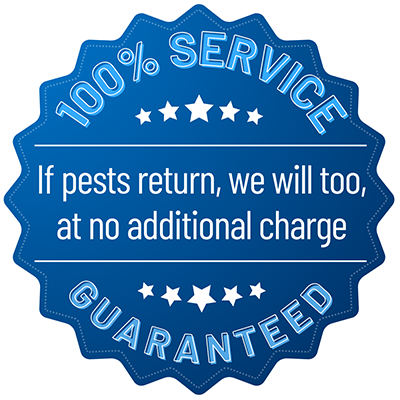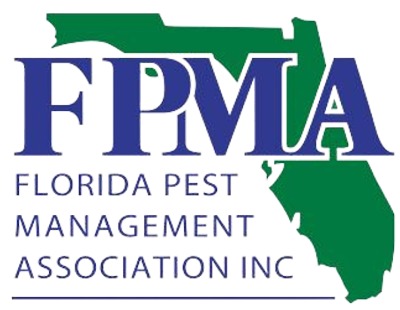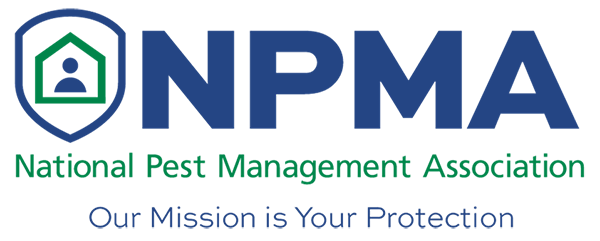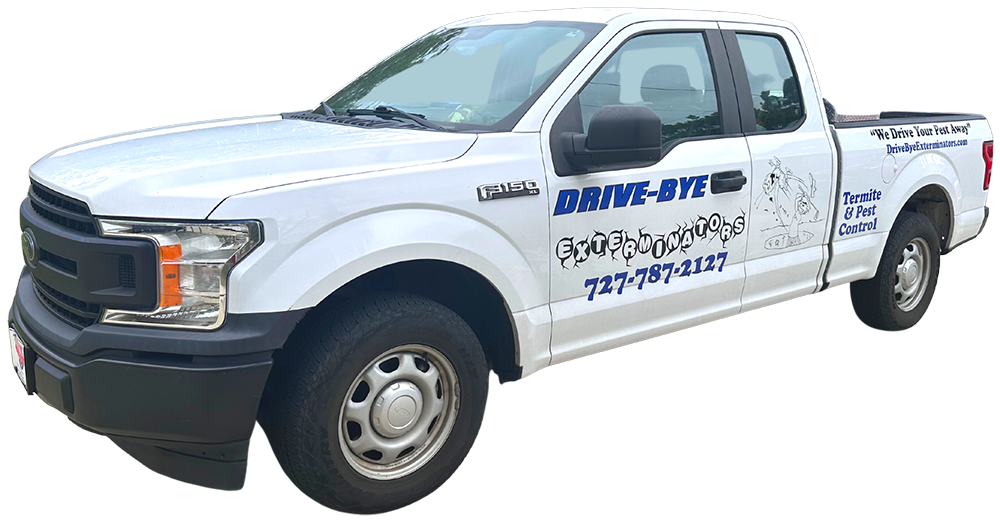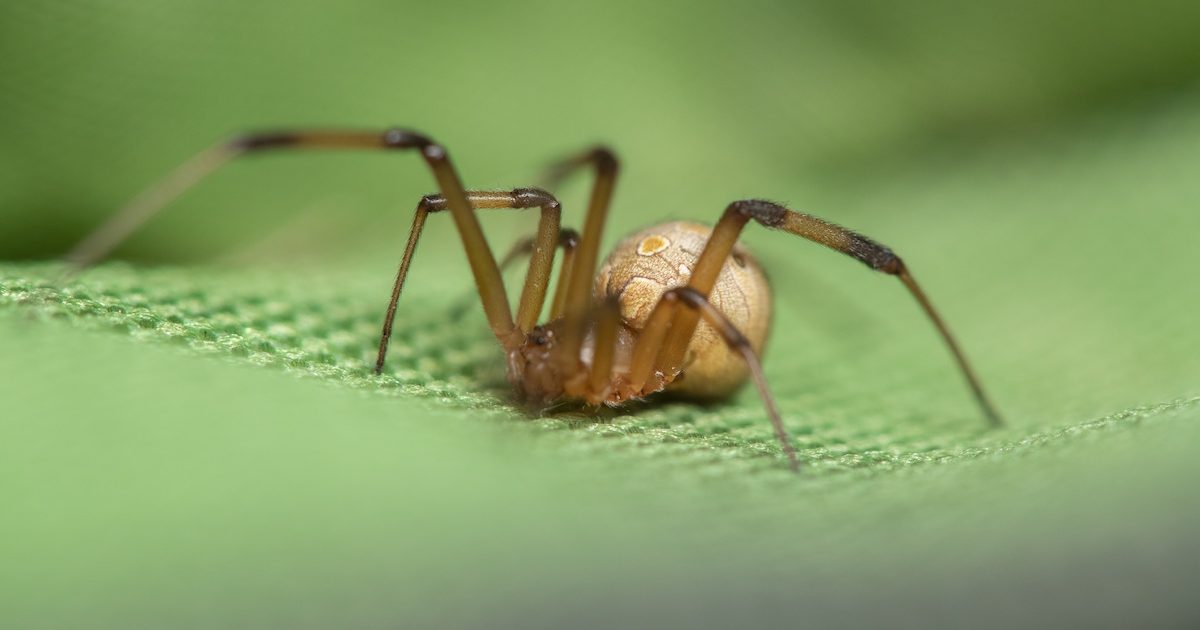
Did you know that there are over 58 species of spiders living with us in Florida? In this Spiders in Florida Series, we take a look at the most dangerous venomous domestic house spiders:
- Brown Recluse Spider (Loxosceles reclusa)
- Brown Widow Spider (Latrodectus geometricus)
- Northern Black Widow Spider (Latrodectus variolus)
- Red Widow Spider (Latrodectus bishop)
- Southern Black Widow Spider (Latrodectus genus)
In this series, we already covered the Most Common Domestic House Spiders in Florida.
Most Common Domestic House Spiders
- American House Spider (Parasteatoda tepidariorum)
- Daddy Long Legs (Opiliones order)
- Domestic House Spider (Tegenaria domestica)
- Jumping Spiders (Salticidae family)
- Southern House Spider (Kukulcania hibernalis),
- Yellow Sac Spiders (Cheiracanthium genus)
Below we discuss the Brown Widow Spider in the Tampa Bay area:
Brown Widow Spiders
There are four species of widow spiders that you might find in Florida, three of them native and one of them introduced. Brown, Southern Black, Northern Black, and Red Widow.
Other Common Names
Widow Spider, Brown Button Spider, Gray Widow, Geometric Button Spider, Hourglass Spider, Cobweb Spider, Cob Web Spider, Comb-footed Spider, Tangle-web Spider, Gumfoot-web Spider
Primary Colors
Black, brown, gray, tan, white, yellow and orange
Location and Range
Latrodectus geometricus (Brown Widow Spider) has been sighted in the following countries: Afghanistan, Argentina, Bahrain, Brazil, Curacao, India, Israel, South Africa, United Arab Emirates, United States.
Latrodectus geometricus has also been sighted in the following states: Alabama, California, Florida, Georgia, Hawaii, Texas.
Seasonality
Brown Widow Spiders have been primarily sighted during March. Here are some interesting facts about them.
- They may be common in gardens and yards, sometimes building its web in more exposed situations.
- Egg sacs are usually beige or brown spherical tufted/spiky objects that may be the best clues in identifying this species when the spider itself is not present (no other species of widow creates spiky egg sacs). Each one is 10 millimeters in diameter and contains anywhere from 80-150 eggs; with females producing up to 20 sacs in their lifetime.
- Their venom is potentially dangerous to humans, but the spider itself is timid and non-aggressive. Like other widow spiders, its venom is neurotoxic, and while it’s likely to be just as potent as that of other widow spiders, it’s thought that they inject far less venom and bites usually only result in localized pain and swelling.
- The spider can be mistaken for the Common House Spider. Check for an orange or red hourglass mark on the underside of the abdomen.
Appearance
The female widow spider has a glossy, jet black body and a bright red mark on the underside of her abdomen that is shaped like an hourglass. The males are usually brown or gray. The females are much bigger than the males, with the females measuring around 1.5 inches and the males being only a quarter of the size.
Of the two genders, the female widow is the most poisonous, as its venom sacs are much bigger. The male bite is not typically not dangerous.
Because widow spiders are nocturnal, they build irregular, tangled, three-dimensional webs, where they rest during the daytime.
To reduce your risk of bites, shake out old clothing before you put them on, and wear gloves when working outdoors or in sheds and garages.
Symptoms of a Widow Bite
Symptoms generally start between one to three hours after the bite:
- Symptoms include intense pain, nausea, muscle cramps, vomiting, and sweating.
- The venom initially just effects the area of the bite but is spread by the lymphatic system and then the bloodstream around the body.
- If treated, a bite is rarely fatal. The symptoms can last from 3 to 5 days.
We have different maintenance programs for unwanted pests like spiders, roaches, ants, bed bugs, silverfish, fleas, termites, and more. We offer same day, one-time, monthly, quarterly, and yearly extermination service programs which are all very effective pest control programs.
If you suspect a spider problem, contact a local experienced pest control company for an inspection immediately?
Drive-Bye Exterminators offers home and commercial pest control services in Clearwater, Florida, and the surrounding areas. Family owned and operated for over 25 years, Drive-Bye Exterminators has state certified inspectors, and exterminators provide roach, subterranean termite, dry wood termite, roaches, spider, ant, and flea services to both commercial and residential clients. Whether a business owner needs help getting rid of a termite infestation, or a homeowner wants to rid their kitchen of ants, Drive-Bye Exterminators offers each client the same level of professionalism and excellence.
Request a FREE Pest Control or Termite Inspection today with the Professionals of Drive-Bye Exterminators. Contact Us Today at 727-787-2127.

